COCOPEAT
COCOPEAT
If you’ve landed here, you’re likely looking for a smarter, more sustainable growing solution—and you’re not alone. With increasing demand for eco-friendly farming inputs and reliable sourcing, finding the right growing medium is critical for both performance and sustainability. That’s where Cocopeat comes in.
We offer all grades of Cocopeat—Low EC for horticulture and nurseries, and High EC for farming and general agriculture—each carefully processed and export-ready. Cocopeat retains moisture, improves soil aeration, and reduces water usage, making it ideal for modern agriculture. Whether you’re a local grower or an international importer, our solutions help you scale faster, meet global standards, and grow greener.
Looking for a smarter, more sustainable way to grow? Cocopeat is an eco-friendly medium that retains moisture, improves soil aeration, and reduces water use — making crops healthier and farming more efficient.
We supply Low EC for horticulture and nurseries and High EC for farming and general agriculture — all carefully processed and export-ready. Perfect for growers and importers aiming for higher yields, global standards, and greener growth.
Complete Range of Cocopeat
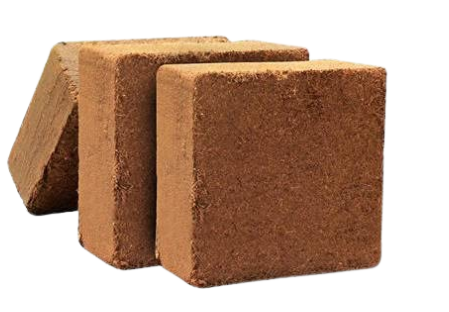
COCOPEAT BLOCKS
5 KG Block – expands to ~75 liters / used in commercial farming, potting mix, and hydroponics (high and low EC available)
2 KG Block – expands to ~30 liters / ideal for nurseries and mid-scale horticulture with easy handling
1 KG Block – expands to ~15 liters / compact block for home gardening, urban farms, and DIY kits
650 GRM Brick – expands to ~9 liters / perfect for balcony gardens, small pots, and retail packaging

COCOPEAT CHIPS BLOCKS
4 KG Block – expands to ~48 liters / ideal for orchids, mulching & hydroponics with low EC (<2) and moisture below 20%
2 KG Block – expands to ~24 liters / suitable for nurseries and garden centers; provides excellent drainage and air porosity
650 GRM Brick – expands to ~7 liters / lightweight and compact for home use, garden kits, and retail shelves

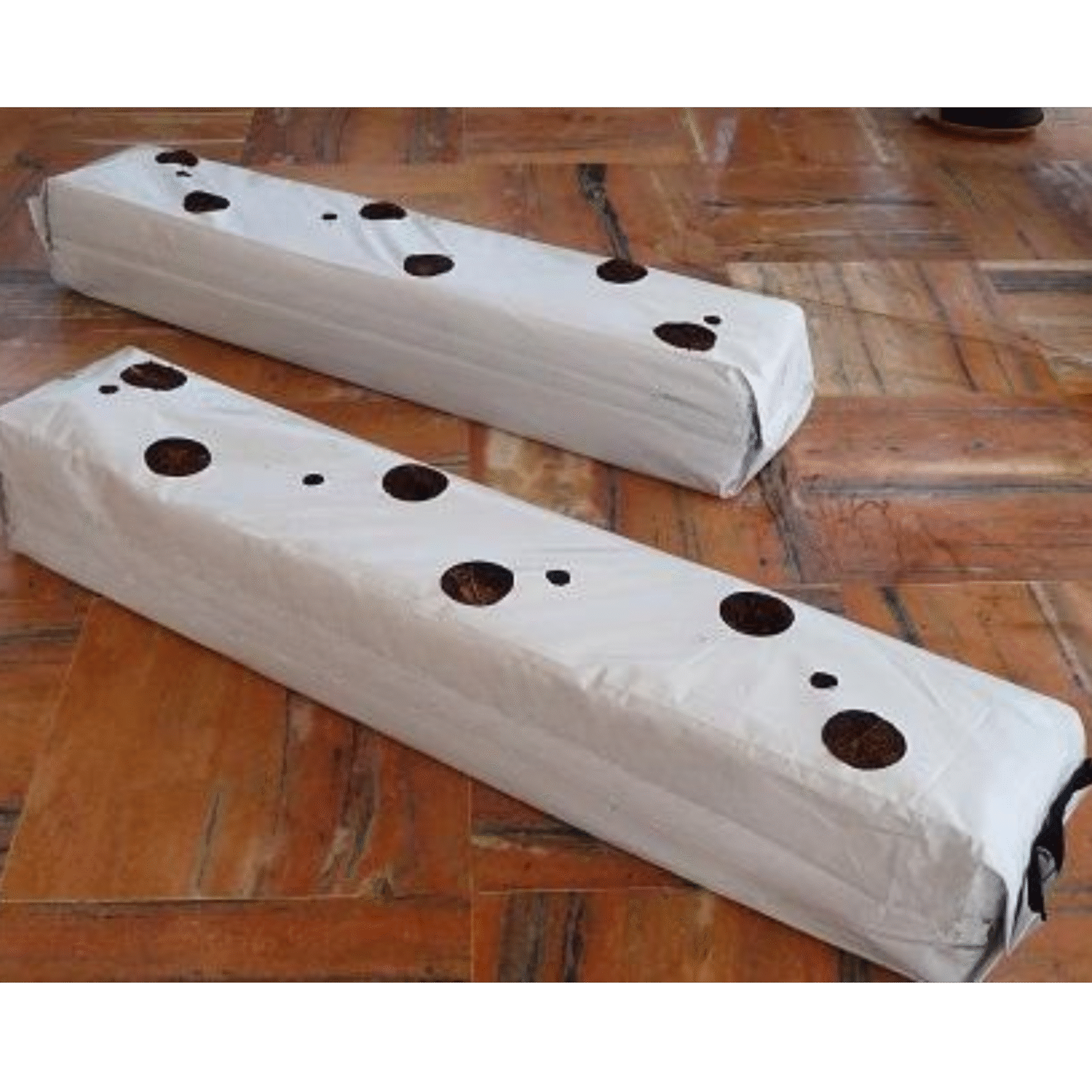
COCOPEAT GROW BAGS
Small (4–8 L):
Sizes: 15×15×18, 18×18×18, 20×20×20 cm
Best for: Herbs, leafy greens, indoor & ornamental plants.
Medium (15–22 L):
Sizes: 25×25×25, 100×15×10/12, 100×18×10/12 cm
Best for: Tomatoes, peppers, brinjals, flowers, terrace gardens.
Large (20–27 L):
Sizes: 30×30×30, 100×20×10/12 cm
Best for: Cucumbers, chilies, okra, gourds, roses, small fruits.
Custom:
Any size/volume on request – suitable for nurseries, hydroponics, greenhouses & farms.
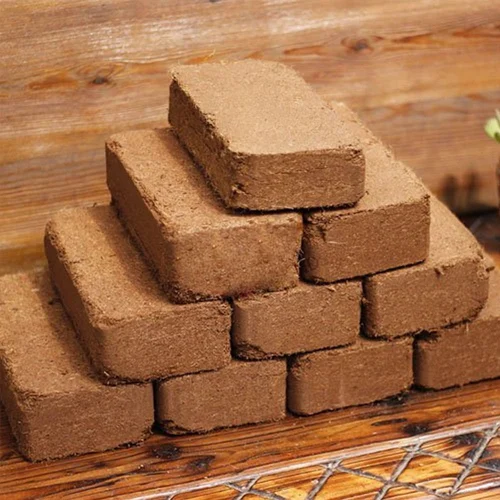
Coco Peat 650 Gm Bricks
Coco Peat 650 gm Brick – expands to 9–10 litres / compact, easy-to-use block ideal for balconies, home gardens, and hydroponic setups
Weight: 650 gm ± 50 g
Size: 20 × 10 × 5 cm ± 2 cm
Compression Ratio: 8:1 (space-saving for storage & shipping)
Moisture: < 15% (ensures long shelf life)
pH: 5.2 – 6.8 (optimal for most plants)
EC: < 0.5 mS/cm (low salinity, safe for roots)
Expansion: Yields 9–10 litres of fluffy growing medium
Best for: potting mixes, seed starting, kitchen gardens, terrace gardens, hydroponics, and soil conditioning.


COCOPEAT LOOSE
25 KG Bag (~50 Liters) – pre-fluffed and ready to use for grow bags, potting mixes, and direct application
70 Liter Bag – expanded, dust-free cocopeat ideal for greenhouses and nurseries
1 KG Pack – small token pack for kitchen gardens, indoor plants, and retail kits
5 KG Pack – medium pack for terrace gardens, landscape use, or small-scale farming
10 KG Pack – bulk option for serious growers and home-based horticulture
Custom Packaging – available in any quantity or packing style as per customer requirements

COCOPEAT DISCS
60 MM Disc – expands to ~250 ml / ideal for seed trays, small pots, and urban farming kits
80 MM Disc – expands to ~500 ml / used in nursery pots and plug trays for herbs and ornamentals
95 MM Disc – expands to ~750 ml / individually wrapped; perfect for retail kits and home gardening
100 MM Disc – expands to ~1,000 ml / supports transplant-ready crops and medium planters
120 MM Disc – expands to ~1,200 ml / ideal for flowering plants and semi-mature saplings
150 MM Disc – expands to ~1,500 ml / best for fruit trees and long-cycle crops in nursery or semi-hydro systems


COCOPEAT NAKED PELLETS
20 MM Pellet – expands to ~40 ml / ideal for seed trays and small herbs like basil and lettuce
30 MM Pellet – expands to ~50 ml / suitable for vegetables, flowers, and nursery seedling trays
35 MM Pellet – expands to ~50 ml / perfect for slightly larger seedlings and export kits
40 MM Pellet – expands to ~90 ml / supports strong early root growth in greenhouses and open-field crops
50 MM Pellet – expands to ~140 ml / designed for large seedlings like tomato, chili, and medicinal plants
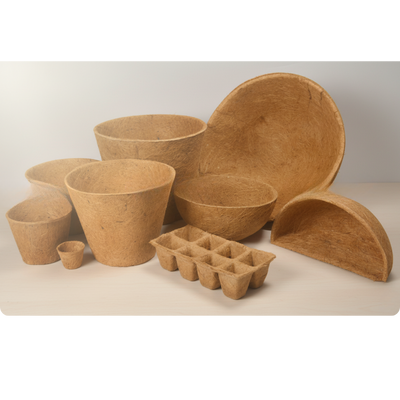
coco coir pots
2” Round Pot – ideal for seedlings, succulents, and propagation; perfect for nurseries and starter kits
4” Round Pot – used for herbs, small vegetables, and ornamentals in kitchen gardens
6” Round Pot – suitable for medium houseplants, balcony gardening, and gifting packs
8” Round Pot – for decorative plants and flowering varieties; both indoor and outdoor use
10” Round Pot – supports semi-mature plants, herbs, and ornamentals; prevents transplant shock
12” Round Pot & Above – best for fruit saplings, shrubs, and landscaping projects
Mini Pots (2–5 cm) – compact size for saplings, succulents, cactus, and gift kits; lightweight and retail-friendly
Seedling Trays (6 / 8 / 12 / 24 cells) – ideal for germination of vegetables, herbs, and flowers; ensures strong root growth with easy transplantation
Wall-Hanging Pots (8” / 10” / 12”) – semi-circular pots designed for vertical gardening and decorative planting; retain moisture while enhancing aesthetic appeal

Choosing the Right Type of Cocopeat
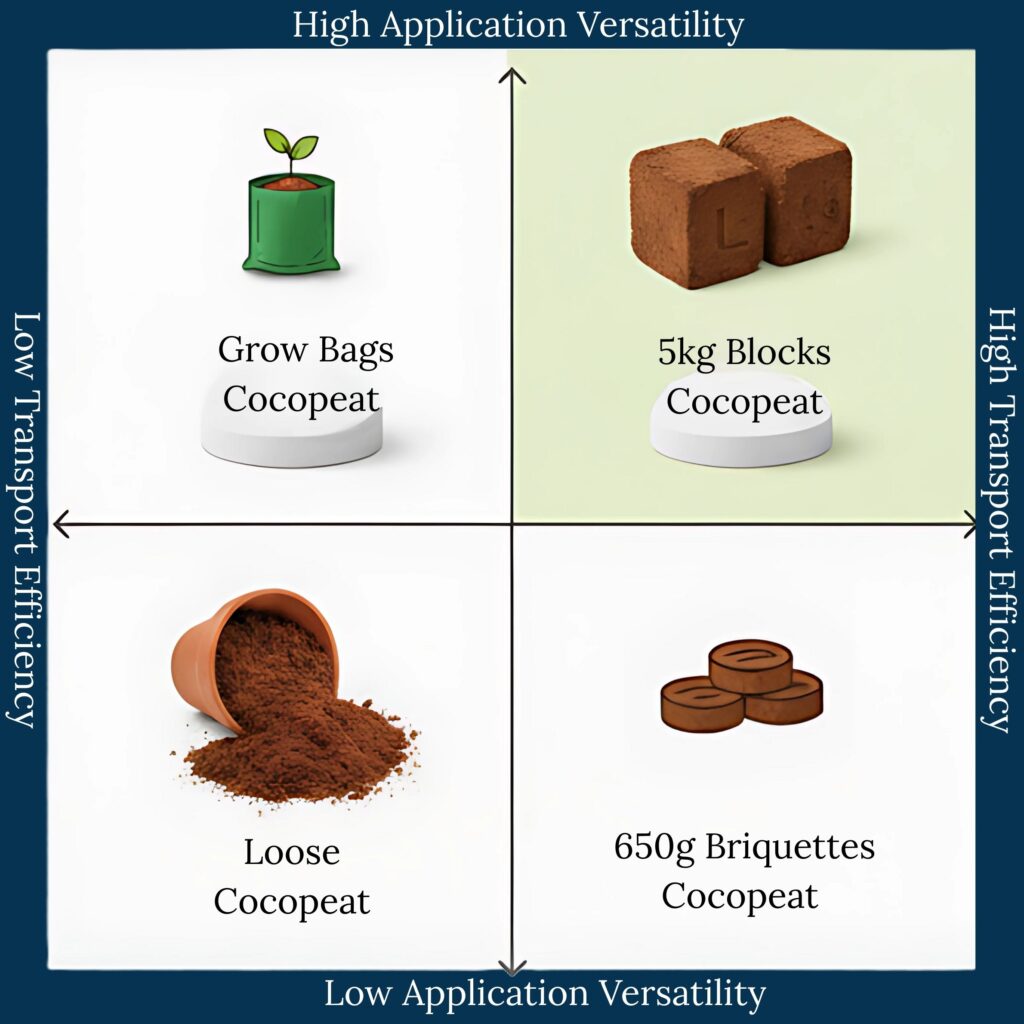
This chart shows four common types of cocopeat. We compare them in two ways:
Application Versatility = how many uses it has.
Transport Efficiency = how easy it is to move and carry.
Top Right (Best Balance):
5kg Blocks – Many uses, and easy to transport.
Top Left:
Grow Bags – Many uses, but harder to transport.
Bottom Right:
650g Briquettes – Easy to transport, but fewer uses.
Bottom Left (Least Efficient):
Loose Cocopeat – Hard to transport, and fewer uses.
Import Regulations for Cocopeat in the UK & Europe
Regulatory Authority: European Commission – Directorate-General for Health and Food Safety (DG SANTE)
- EU Plant Health Regulations (2019/2072) – Requires a Phytosanitary Certificate for all coco peat imports.
- Soil-Free Requirement – Coco peat must not contain any soil residues.
- Buffering Requirement – High EC coco peat is often rejected unless it’s washed and buffered.
- Packaging & Labeling – Bags or blocks should be clearly labeled with origin, weight, and composition.
- Import Duty – Generally 0% under HS Code 530500, but VAT applies.
Common Issue: If coco peat contains weed seeds or organic contaminants, it may be quarantined or incinerated.
Import Regulations for Coco Peat in Australia & New Zealand
Regulatory Authority (China): General Administration of Customs (GACC)
Regulatory Authority (Middle East): Dubai Municipality & Saudi Food and Drug Authority (SFDA)
- Phytosanitary Certificate – Mandatory for all coco peat shipments.
- Salt & EC Limits – High EC coco peat must be pre-washed before import.
- Customs Duties (China) – Varies from 5-10% depending on CIF value.
- Packaging & Labeling – Clear labeling is required in Chinese or Arabic.
Common Issue: Incorrect documentation or missing compliance certificates may result in shipment rejection.
How much coco peat fits in a 40ft container?
A 40ft high-cube container can hold:
- 5kg Blocks – 25-28 metric tons (~5,500 – 6,000 blocks).
- 650g Bricks – 20-22 metric tons (~30,000 – 32,000 bricks).
- Loose Coco Peat – 18-20 metric tons, depending on moisture content.
How long does it take to import coco peat from India?
- USA/Canada – 30-45 days by sea.
- UK/Europe – 25-35 days by sea.
- China/Middle East – 10-20 days by sea.
- Australia/New Zealand – 20-30 days by sea.
How much coco peat fits in a 40ft container?
A 40ft high-cube container can hold:
- 5kg Blocks – 25-28 metric tons (~5,500 – 6,000 blocks).
- 650g Bricks – 20-22 metric tons (~30,000 – 32,000 bricks).
- Loose Coco Peat – 18-20 metric tons, depending on moisture content.
How long does it take to import coco peat from India?
- USA/Canada – 30-45 days by sea.
- UK/Europe – 25-35 days by sea.
- China/Middle East – 10-20 days by sea.
- Australia/New Zealand – 20-30 days by sea.
How long does it take to import coco peat from India?
- USA/Canada – 30-45 days by sea.
- UK/Europe – 25-35 days by sea.
- China/Middle East – 10-20 days by sea.
- Australia/New Zealand – 20-30 days by sea.
Tip: Importers should pre-book containers during off-peak seasons to avoid price surges.
Quality Control Measures Before Shipment
To avoid rejection or losses, ensure coco peat meets importing country regulations. Implement:
- Third-Party Lab Testing – Check moisture, EC levels, and impurities.
- Pre-Shipment Inspection (PSI) – Many buyers hire SGS, Intertek, or Bureau Veritas.
- Random Sampling from Containers – Ensure uniform quality across all blocks.
- Batch-wise Tracking & Labeling – Helps in identifying defective batches.
Tip: Request suppliers to send real-time videos/photos before dispatch
Optimize Shipping & Logistics for Cost Savings
Shipping is a major cost component. Reduce logistics expenses with these tactics:
- Choose FOB (Free on Board) Instead of CIF – More control over shipping rates.
- Book Containers During Off-Peak Seasons – Avoid peak demand months (March-May).
- Partner with a Reliable Freight Forwarder – Get discounted rates on bulk shipments.
- Use Consolidation Warehouses – If importing multiple products, consolidate in one shipment.
- Monitor USD/INR Exchange Rates – Pay when the rupee depreciates to get better pricing.
Pro Tip: Pre-booking containers 4-6 weeks in advance saves $200 – $500 per shipment.
How to Ensure a Smooth Import Process
To avoid delays and ensure successful clearance, importers should:
- Work with experienced suppliers who follow export regulations.
- Request compliance documents (Phytosanitary Certificate, Fumigation Certificate, COA).
- Confirm moisture & EC levels before shipping.
- Use proper packaging to prevent contamination.
- Stay updated with regulatory changes in the target market
See how Cocopeat can support your business.
Send us an enquiry and our team will get in touch with you shortly.
See how Cocopeat can support your business.
Send us an enquiry and our team will get in touch with you shortly.
